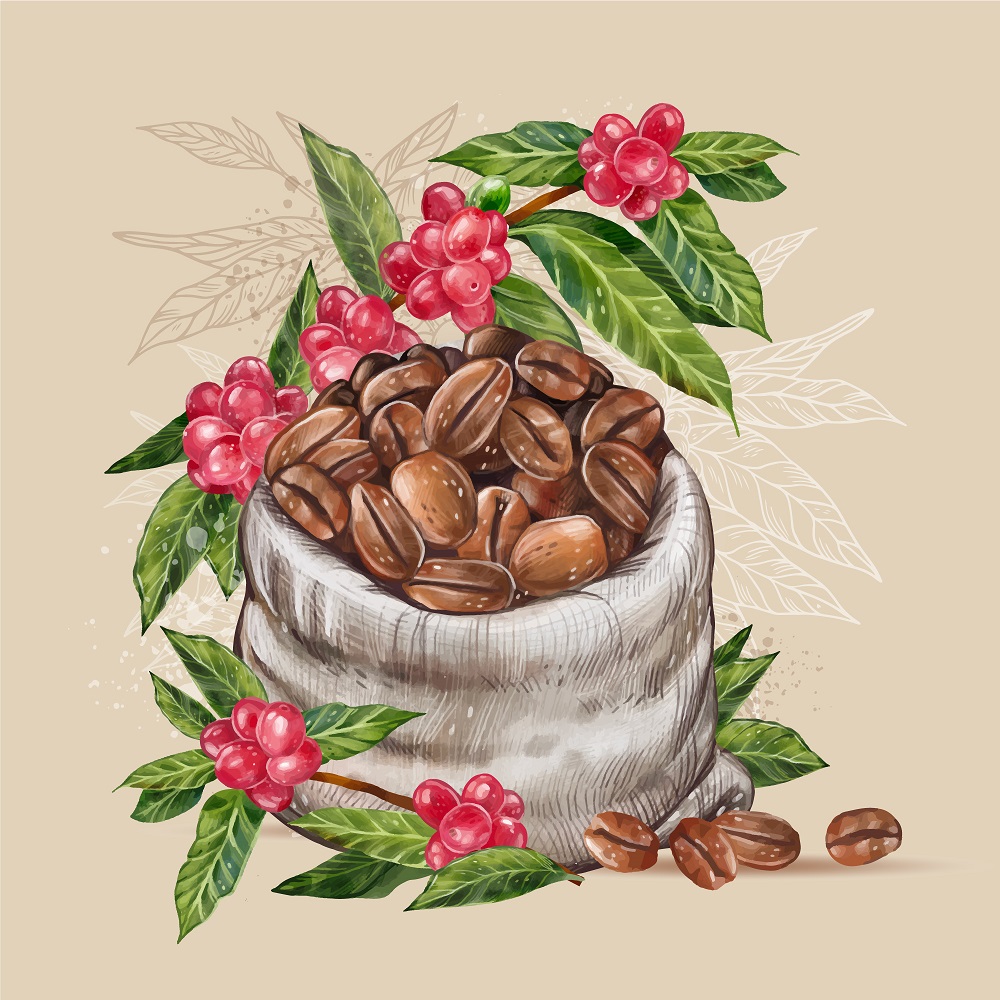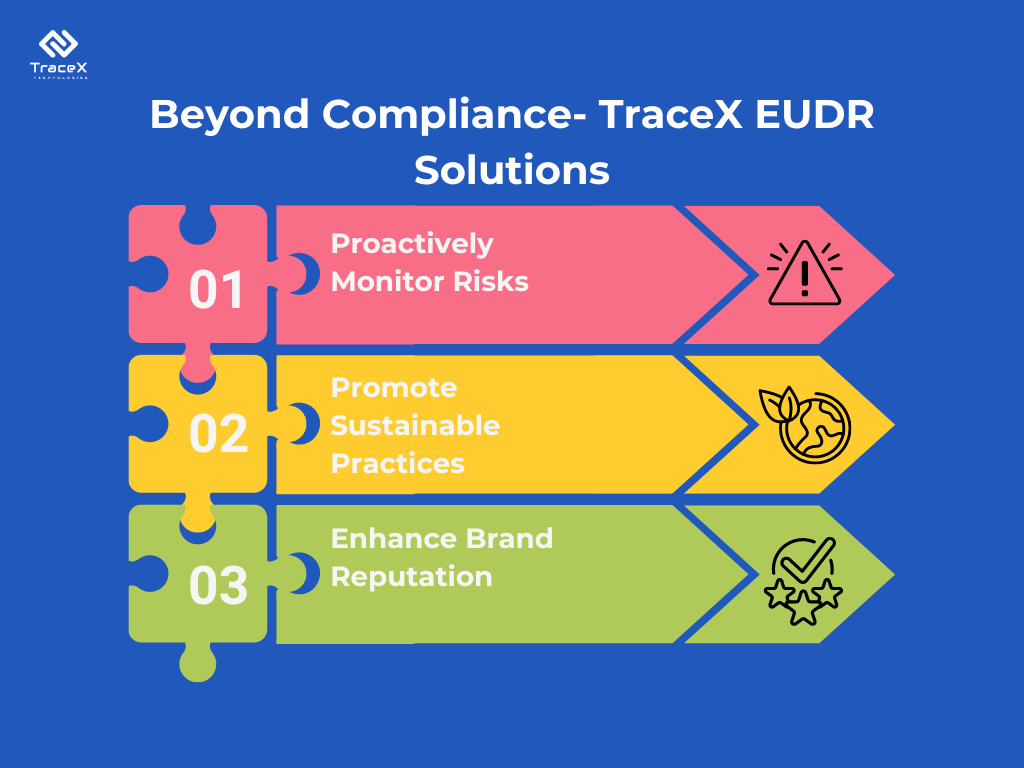Contact: +91 99725 24322 |
Menu
Menu
Quick summary: Explore how coffee roasters can navigate European Union deforestation regulations effectively. Learn about compliance challenges, strategies, and the importance of responsible sourcing in this insightful blog.

As global concerns regarding deforestation and its environmental impacts continue to rise, regulatory bodies like the European Union (EU) have implemented stringent regulations to address the issue. In particular, the EU has established deforestation regulations aimed at mitigating the environmental and social risks associated with the production and trade of commodities like coffee. For coffee roasters, ensuring compliance with these EU Deforestation regulations is not only a legal requirement but also a moral imperative in promoting sustainable and responsible sourcing practices.
Between 1990 and 2020, a United Nations Food and Agriculture Organization study revealed that around 420 million hectares of forest were converted into agricultural land, including areas for coffee cultivation. Furthermore, the FAO’s research indicates that imports of these commodities to the European Union market contributed to approximately 11% of global deforestation levels.
The European Union Deforestation Regulation (EUDR), implemented in June 2023, aims to tackle deforestation and forest degradation caused by the consumption of certain commodities within the EU.
The regulation focuses on seven key commodities and their derived products: viz. Cattle, Cocoa, Coffee, Palm oil, Soy, Wood and Rubber. This means a wide range of products fall under the EUDR, including leather, meat, chocolate, coffee beans, soybeans, palm oil, tires, furniture, paper, and more.
Companies placing these commodities on the EU market or exporting them from the EU must demonstrate the products are deforestation-free. This means they cannot be linked to recent deforestation (after December 31, 2020) or breaches of local environmental laws. Companies are required to conduct thorough due diligence throughout their supply chains to verify the origin of the commodities and ensure they meet the deforestation-free criteria. This involves risk assessments, geo-localization data, and supplier audits.
The regulation came into effect in June 2023, but companies were granted an 18-month grace period to implement the necessary due diligence procedures. This means full compliance is expected by December 30, 2024. Micro and small enterprises have a longer adaptation period with specific provisions.
EU member states are responsible for enforcing the regulation within their territories. They will conduct checks on companies to ensure compliance, focusing on factors like the risk profile of the commodity, supply chain complexity, and a company’s history of non-compliance.
The EUDR is a significant step by the EU to promote responsible sourcing and reduce its contribution to global deforestation. By requiring companies to ensure deforestation-free products, the regulation aims to incentivize sustainable practices throughout the supply chain.
Compliance with EU deforestation regulations is crucial for coffee roasters operating within the EU market. Coffee production is often linked to deforestation in regions such as Latin America, Africa, and Southeast Asia, where forests are cleared to make way for coffee plantations. As such, coffee roasters must ensure that their supply chains are free from deforestation and comply with EU regulations to mitigate environmental harm.
The European Union Deforestation Regulation (EUDR) encourages enhanced traceability across supply chains, offering compliant firms a competitive edge. Such companies can access premium markets prioritizing sustainability, potentially commanding higher prices from buyers.
Non-compliance with EU deforestation regulations can have significant repercussions for coffee roasters, including reputational damage, legal consequences, and market access restrictions. With growing consumer awareness and demand for ethically sourced products, adherence to sustainability standards has become increasingly important for businesses seeking to maintain consumer trust and competitiveness in the market.
Furthermore, by prioritizing compliance with EU regulations and adopting sustainable sourcing practices, coffee roasters can contribute to broader environmental conservation efforts and support the livelihoods of coffee-producing communities. In doing so, they not only meet regulatory requirements but also demonstrate their commitment to environmental responsibility and social sustainability, thereby enhancing their brand reputation and market positioning.
One of the primary challenges faced by coffee roasters is the inherent complexity of coffee supply chains. Coffee production typically involves multiple actors, including farmers, cooperatives, traders, exporters, importers, and roasters, each playing a role in the journey of coffee beans from farm to cup. This complexity is further compounded by the global nature of the coffee trade, with beans sourced from diverse regions worldwide. Navigating these complex supply chains can be daunting for coffee roasters, as they must trace the origin of their coffee beans and ensure compliance with various regulations and standards throughout the supply chain. The intricate network of suppliers, intermediaries, and logistics involved in coffee sourcing makes it challenging to maintain visibility and accountability, increasing the risk of unintentional involvement in deforestation or other unsustainable practices.
Another significant challenge for coffee roasters is the lack of transparency in sourcing practices within the coffee industry. Many coffee supply chains lack transparency, with limited information available about the origin, production methods, and social and environmental impacts of coffee beans. This opacity makes it difficult for coffee roasters to assess the sustainability and ethicality of their supply chains and verify compliance with regulatory requirements. Without transparent sourcing practices, coffee roasters may unknowingly source beans linked to deforestation, habitat destruction, or labour exploitation, undermining their efforts to promote sustainability and responsible sourcing. Moreover, consumers are increasingly demanding transparency and accountability from companies regarding the origins of their products, further emphasizing the need for greater transparency in coffee supply chains.
Related to the lack of transparency is the difficulty faced by coffee roasters in obtaining accurate and reliable information about their supply chains. Due to the complex and fragmented nature of coffee supply chains, gathering comprehensive data on the origin, cultivation practices, and handling of coffee beans can be a daunting task. Information may be scattered across multiple stakeholders, databases, and paper records, making it challenging to access and verify. This difficulty in obtaining supply chain information hampers coffee roasters’ ability to conduct due diligence, assess risks, and implement effective traceability and monitoring mechanisms. Without access to timely and accurate information, coffee roasters may struggle to identify and address sustainability issues within their supply chains, hindering their efforts to comply with EU deforestation regulations and meet consumer expectations for ethical and sustainable coffee products.
One key strategy for coffee roasters to achieve compliance with European Union deforestation regulations is to implement robust due diligence procedures throughout their supply chains. Due diligence involves conducting comprehensive assessments of suppliers and sourcing regions to identify and mitigate risks associated with deforestation and illegal logging.
Coffee roasters can start by conducting risk assessments to identify high-risk areas or suppliers within their supply chains. This involves evaluating factors such as the geographic location of coffee farms, land-use practices, deforestation rates, and regulatory compliance. By understanding the potential risks associated with their supply chains, coffee roasters can prioritize efforts to address the most critical issues and allocate resources effectively.
Once risks are identified, coffee roasters can implement risk mitigation measures to reduce their exposure to deforestation-related risks. This may include developing and implementing supplier codes of conduct, requiring suppliers to provide evidence of legal and sustainable sourcing practices, and conducting regular audits and site visits to verify compliance.
Another important strategy for coffee roasters is to actively engage with suppliers and stakeholders throughout their supply chains. Collaboration and dialogue with coffee producers, cooperatives, traders, and other stakeholders can foster transparency, build trust, and facilitate the exchange of information and best practices.
Coffee roasters can engage with suppliers through direct communication, partnership agreements, and participation in industry initiatives and platforms. By fostering strong relationships with suppliers, coffee roasters can encourage transparency, promote sustainable practices, and address common challenges collaboratively.
Furthermore, coffee roasters can engage with relevant stakeholders, including government agencies, non-governmental organizations (NGOs), industry associations, and certification bodies, to stay informed about regulatory developments, industry trends, and best practices related to deforestation and sustainability. Active engagement with stakeholders can help coffee roasters navigate complex regulatory landscapes, access valuable resources and expertise, and demonstrate their commitment to responsible sourcing.
Investing in traceability and transparency solutions is essential for coffee roasters seeking to enhance visibility and accountability in their supply chains. Traceability technologies, such as blockchain-based systems, enable coffee roasters to track the journey of coffee beans from farm to cup, providing real-time visibility into the origin, production methods, and handling of coffee beans.
By implementing traceability solutions, coffee roasters can improve supply chain transparency, trace the origin of coffee beans, and verify compliance with sustainability standards and regulations. Traceability technologies also empower consumers to make informed purchasing decisions, as they can access detailed information about the social and environmental impact of coffee products.
Moreover, transparency solutions enable coffee roasters to collaborate with stakeholders, share information, and address supply chain challenges collectively. By investing in traceability and transparency solutions, coffee roasters can strengthen their sustainability credentials, mitigate risks, and ensure compliance with European Union deforestation regulations, ultimately contributing to a more sustainable and ethical coffee industry.
1. Ensuring Deforestation-Free Sourcing:
2. Fulfilling Due Diligence Obligations:
3. Meeting Compliance Deadlines:
4. Building Transparency and Trust:

In conclusion, compliance with European Union deforestation regulations presents both challenges and opportunities for coffee roasters. By recognizing the importance of sustainability and responsible sourcing practices, coffee roasters can not only meet regulatory requirements but also enhance their reputation, build consumer trust, and contribute to positive environmental and social impact. Through strategic initiatives such as due diligence procedures, engagement with suppliers and stakeholders, and investment in traceability and transparency solutions, coffee roasters can navigate the complexities of supply chains, mitigate risks, and ensure compliance with EU regulations. By embracing sustainability as a core value and taking proactive steps to address deforestation, coffee roasters can play a pivotal role in shaping a more sustainable and ethical coffee industry for the future.
